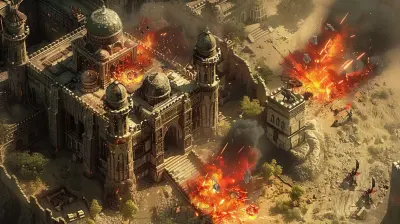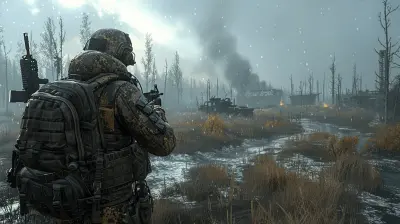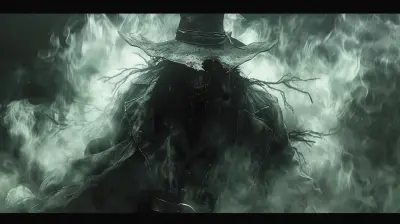Fate and Destiny: The Eternal Conflict in Final Fantasy VII’s Storyline
23 July 2025
Let’s be honest—when it comes to RPGs, Final Fantasy VII isn't just any game. It’s the game. Mention it in a room filled with gamers, and you’re either starting a lovefest or a nerdy brawl. But aside from the heavy dose of nostalgia, absurdly spiky hair, and a soundtrack that slaps harder than your mom when you back-talk, there’s one thing that keeps FFVII in the pantheon of legends: its story. Specifically, the eternal conflict between fate and destiny.
Look, if you’re someone who thinks fate and destiny are the same thing (spoiler alert: they’re not), buckle up because this ride is about to get bumpy. Let’s dissect the beautifully messy chaos of Final Fantasy VII’s narrative, where "fate" and "destiny" don’t just coexist—they downright throw hands with each other.
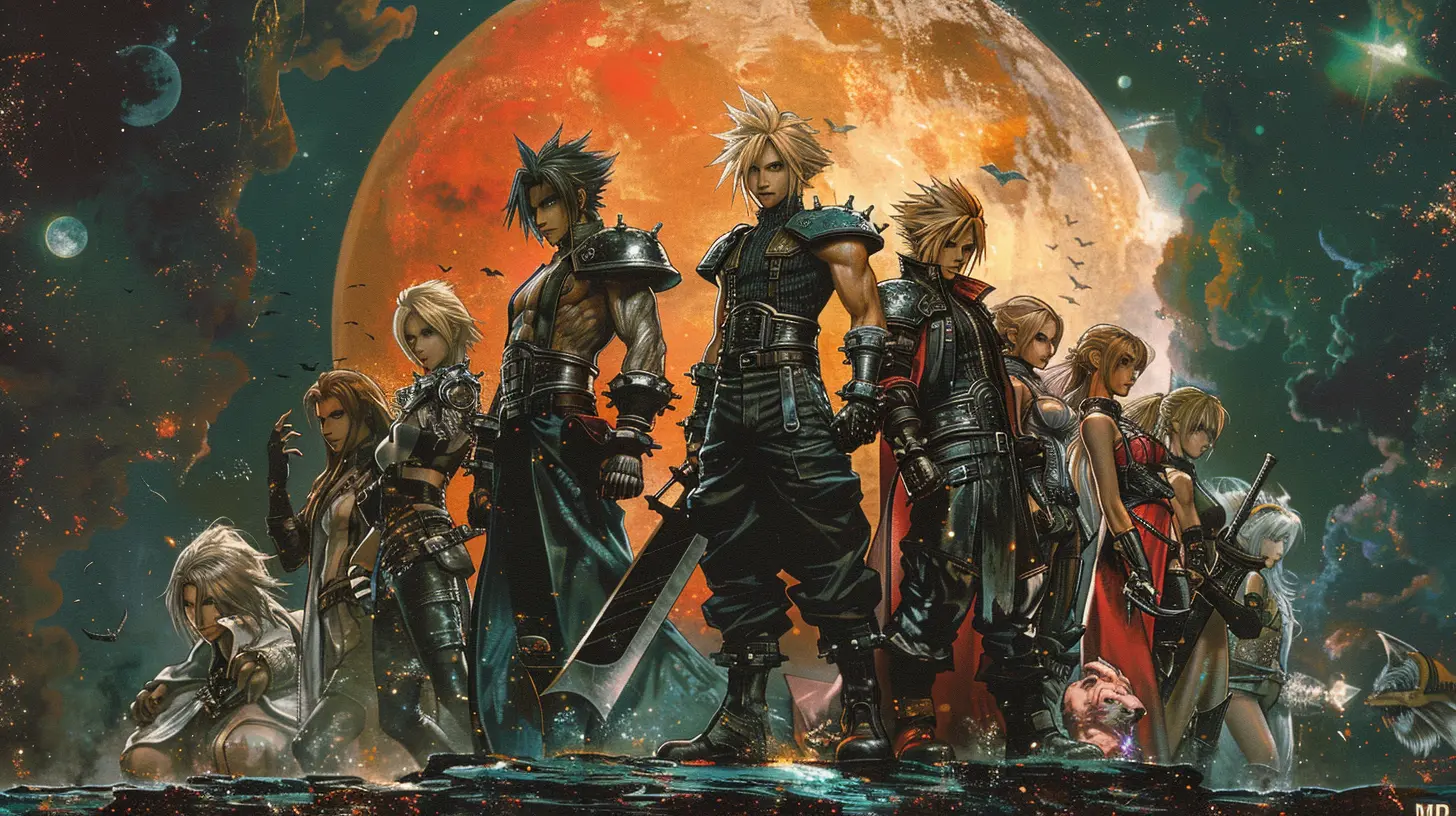
Fate vs. Destiny: What’s the Difference, Anyway?
Before we go all-in, let’s clear something up. Fate is like that annoying friend who keeps saying, “It’s already decided.” Destiny, on the other hand, gives more of a “Choose your own adventure” vibe. Fate says, “You’re stuck with this garbage outcome.” Destiny’s like, “You can mess things up or shine—it’s on you, pal.”Now, apply that logic to Final Fantasy VII, and suddenly the story makes a whole lot more sense. The characters are constantly stuck in this tug-of-war between what feels inevitable and what they’re striving to change. And let me tell you—it gets messy.
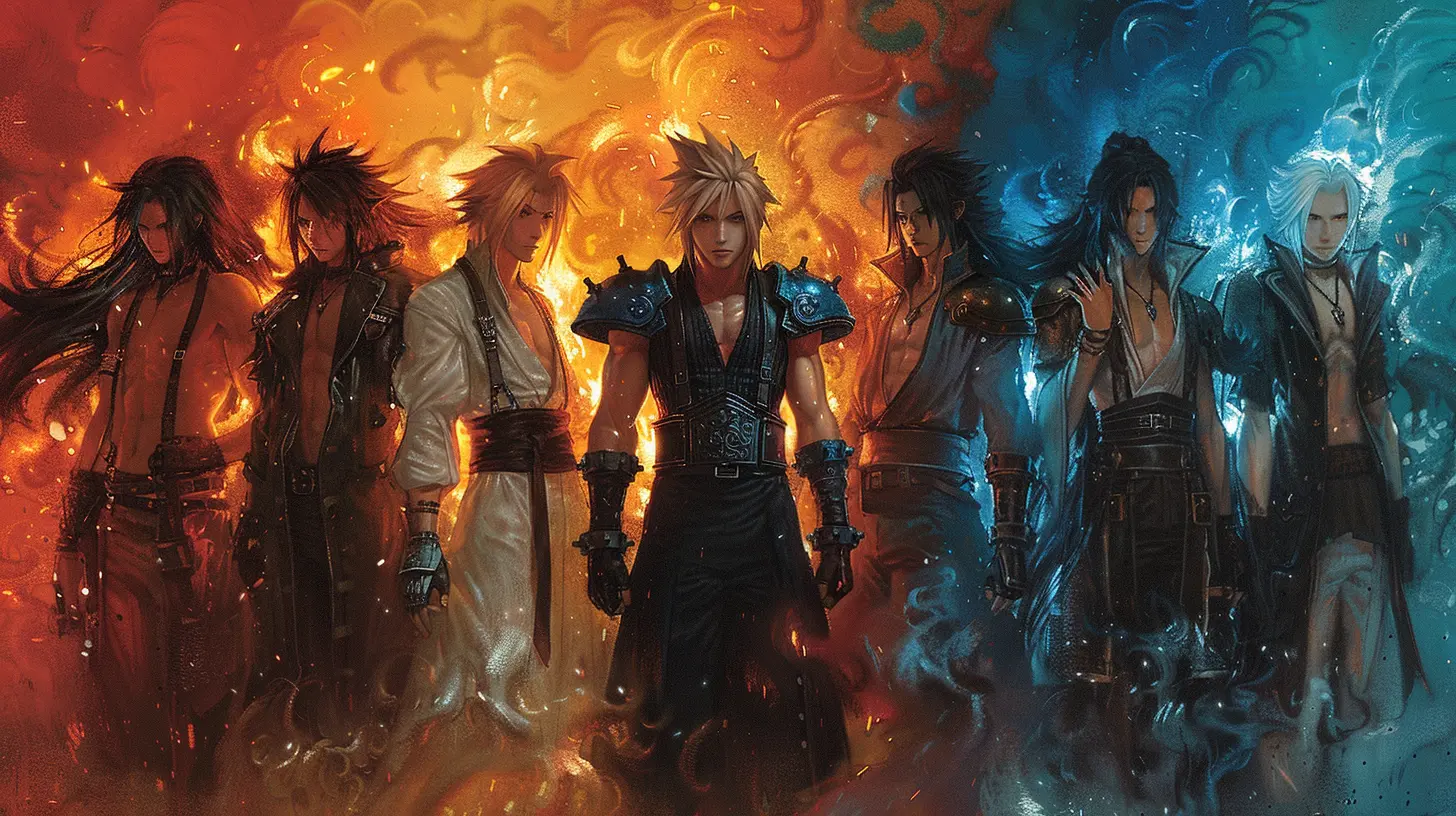
Cloud Strife: The World’s Most Confused Protagonist
Ah yes, Cloud Strife. The guy with a sword that makes compensating car enthusiasts weep. If there’s one character who embodies this eternal battle between fate and destiny, it’s him. From the moment you meet Cloud, it’s obvious this dude’s identity is more scrambled than your grandma’s Wordle guesses.Here’s the deal: Cloud thinks he’s the ex-SOLDIER hero destined to save the world. Surprise! He’s not. Most of what he believes about himself is built on self-deception and manipulation (thanks a lot, Sephiroth). Talk about being fate’s punching bag! Yet, as the story unfolds, Cloud begins to take control of who he is—he shifts toward embracing his destiny on his terms. It’s like watching someone realize they don’t have to follow the family recipe for lasagna. Add that extra cheese, Cloud. Be the chef of your own life.
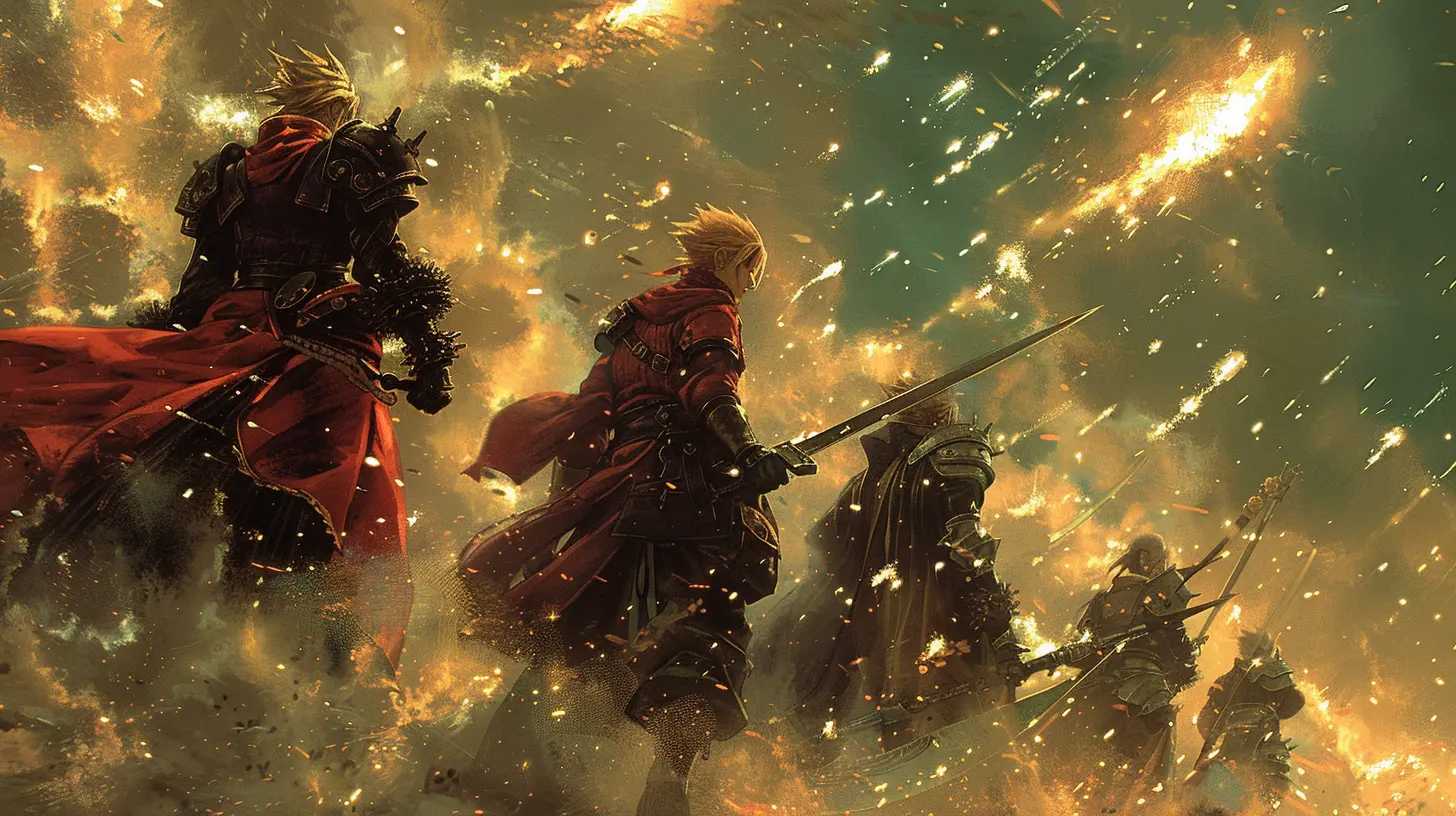
Aerith Gainsborough: A Flower Girl Against the Universe
If we’re talking fate and destiny, Aerith is basically the poster child for this duel. Fate says, “Hey Aerith, you’re a Cetra. You’re gonna die. Deal with it.” Destiny, though? Destiny whispers, “Yeah, but you still can fight like hell to leave your mark.”Her death is one of the most iconic moments in gaming history, and let’s be real, every single one of us ugly-cried when Sephiroth went full stabby-stabby. (Seriously, dude, chill with the katana!) Aerith’s fate was sealed from the beginning, but her actions—the choices she made along the way—left a ripple effect that no amount of "Game Over" screens could erase.
In a way, Aerith reminds us that even when fate calls dibs, destiny gives us the power to leave footprints in the sand. Or in her case, save the planet with some OG magic.
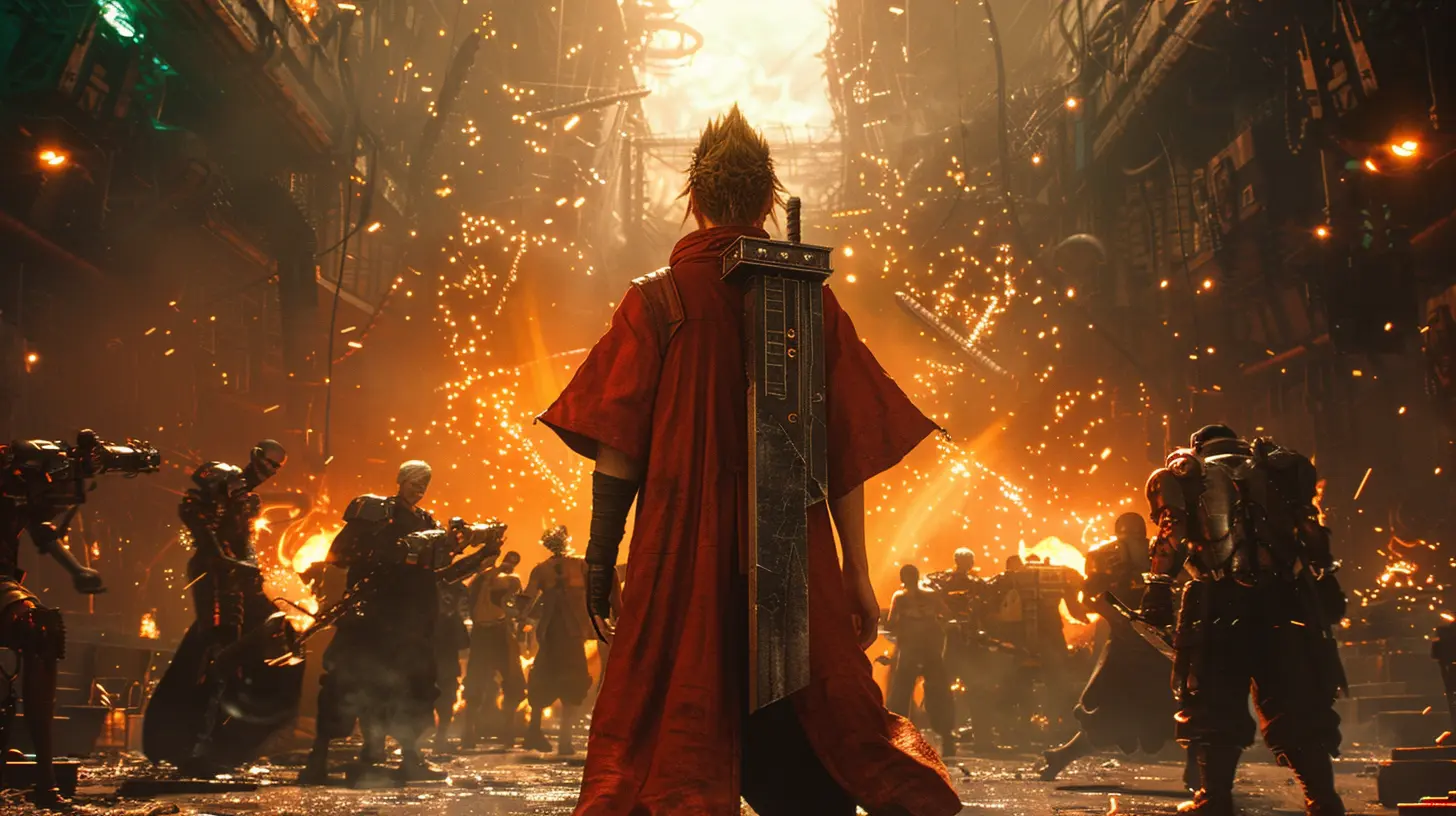
Sephiroth: The Mama’s Boy with a God Complex
Oh, Sephiroth. The man, the myth, the leather trench coat-wearing legend. This guy is fate’s golden child but destiny’s worst nightmare.Sephiroth’s whole shtick is being tied to Jenova, the alien calamity who’s basically every bad sci-fi trope rolled into one. Fate tells Sephiroth, “You’re a villain. Go burn down Nibelheim and swing your sword around like a lunatic.” And boy, does he deliver.
But here’s the thing—Sephiroth could’ve had a choice, right? Destiny could’ve been his redemption arc. Instead, he double-downs on his "cosmic momma’s boy" complex and fully embraces his fated role as THE BAD GUY. Let’s be honest, Sephiroth is like that one friend who refuses to change their toxic behaviors because “that’s just who I am.” Bruh, therapy exists.
The Whispers: Fate’s Annoying Hall Monitors
Okay, time to address the elephant in the room—or should I say, the ghostly dementors in the room? The Whispers in Final Fantasy VII Remake. These little buggers are literally walking (well, floating) representations of fate. Anytime the characters try to deviate from the “original timeline,” the Whispers swoop in like a high school principal busting up a senior prank.Now, whether you love or hate the Whispers concept, you have to admit—it really punches home the theme of fate versus destiny. The gang spends the whole remake fighting these spectral watchdogs, effectively saying, "We’re not gonna be boxed in, thank you very much." It’s like rebelling against a pre-determined syllabus and writing your own term paper instead. Except, you know, with way more explosions.
The Planet Itself: Big Momma Gaia Ain’t Messing Around
Let’s not forget Earth-2.0 here—the Planet. Essentially, the living, breathing consciousness that serves as the backdrop for all the chaos. If fate and destiny are having a WWE SmackDown, the Planet is the referee… and the main beneficiary.The Planet’s Lifestream is both a part of the natural cycle and a tool for destiny. It’s where dead people hang out (real casual, huh?) but also where choices ripple outward. When Sephiroth tries to hijack this natural order for his own crazy schemes, it becomes a question of whether fate (letting Sephiroth “win”) or destiny (the gang fighting back) will prevail.
And spoiler alert—not even the remake timeline knows the answer yet. Thanks, Square Enix, for ensuring we lose sleep over this until Part 2.
Why This Conflict Hits Close to Home
Here’s the kicker, though: the fate versus destiny debate isn’t just a Final Fantasy VII thing. It’s a life thing. We all experience moments where the universe feels like it’s pushing us in one direction (stupid fate), but we also know we’re not totally powerless. We make decisions daily, however small, that shape our futures (you know, like deciding to spend six hours grinding materia instead of doing chores).Final Fantasy VII’s storyline resonates so well because it taps into this universal struggle. It’s not just about saving the world—it’s about figuring out if you’re the driver of your own life or if you’re stuck on autopilot. And let’s be real, that’s way deeper than any game with a chocobo racing mini-game has a right to be.
Final Thoughts: Let Fate and Destiny Duke It Out
So, what’s the takeaway? Final Fantasy VII doesn’t give us a clear answer to the fate-destiny showdown, and honestly, that’s the point. Life (and gaming) wouldn’t be half as fun if everything was predetermined. Sure, fate might deal you a bad hand, but it’s up to destiny—and you—to figure out how to play it.Whether it’s Cloud finding himself, Aerith leaving a legacy, Sephiroth losing his dang mind, or the Planet just trying to vibe, FFVII masterfully explores the eternal conflict between what must happen and what could happen. It’s epic, emotional, and, yeah, still a little confusing even 25+ years later.
Now, if you’ll excuse me, I’ve got a date with the Gold Saucer and about a million side quests to complete.
all images in this post were generated using AI tools
Category:
Lore And StorylinesAuthor:

Kaitlyn Pace
Discussion
rate this article
1 comments
Rhea Duffy
Intriguing analysis of fate versus choice!
August 13, 2025 at 4:15 AM

Kaitlyn Pace
Thank you! I'm glad you found it intriguing!
